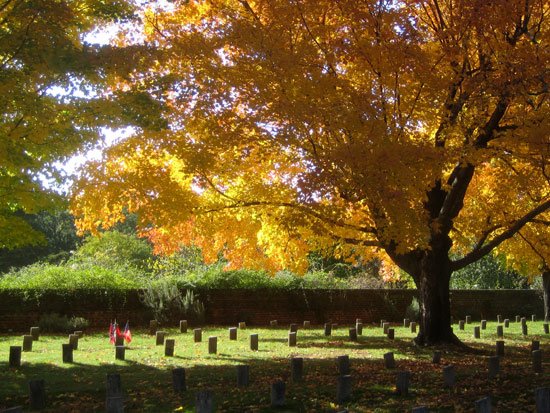 On November 25, 1952 the Orangeburg Times & Democrat announced the death of one of South Carolina’s oldest citizens. He was just a retired farmer, a simple man, living in rural seclusion. Yet his passing was front-page news, his funeral a state occasion. Arnold Murray, age 106, was the state’s last Confederate veteran.
On November 25, 1952 the Orangeburg Times & Democrat announced the death of one of South Carolina’s oldest citizens. He was just a retired farmer, a simple man, living in rural seclusion. Yet his passing was front-page news, his funeral a state occasion. Arnold Murray, age 106, was the state’s last Confederate veteran.On his birthday, June 10 of that year, he was described by a local reporter as “cheerful and spry despite a [recent] heart attack.” Ladies of the United Daughters of the Confederacy sent greetings and several called in person. It had become common for him to receive visitors from the UDC, the Sons of Confederate Veterans, as well as the press. He lived in a three-room cabin in the White House section, cared for by his son. Two daughters also stayed in the area. His wife Laura had died in 1930. The recipient of a modest $60 per-month Confederate pension from the state, electricity had been installed in his little home as a gift of the Edisto Electric Cooperative. He enjoyed sitting on the porch, listening to his radio (with the help of a new hearing aid). The old gentleman had been deeply grieved when grandson Arnold L. Murray was killed in the Korean War. “I would rather go back,” the elder Murray was quoted as saying, “to the old times, if I could choose.”
Murray joined the Confederate army late in the war, as a teenager. “I volunteered and joined up when I was a youngster,” he remembered, “because my pa and brother was way up yonder somewhere in Virginia fighting.” He saw none of the action they did. Young Murray was in training on Sullivan’s Island when Charleston had to be evacuated. In weeks the war was over and he was headed home.
Private Murray saw no combat, but suffered the hardships common to Southern soldiers and civilians. In old age he came to represent those tens of thousands of South Carolinians who donned Confederate uniforms to defend their rights and their homes. When it became known to then-Governor Strom Thurmond that Murray was the last of the state’s Confederate veterans, a committee was formed. Discreetly, in consultation with the family but without the old soldier’s knowledge, plans were made to honor Murray at his passing. In memorializing him their aim was to remember all of the Palmetto State’s Confederate heroes.
The funeral was held at White House Methodist Church on Sunday afternoon, November 30. A procession followed the hearse to the church, ten miles outside of Orangeburg. The Highway Patrol estimated that between 5,000 and 6,000 crowded the grounds of the little house of worship, where loudspeakers had been set up for them to hear the service inside. Cars were parked ½ mile in both directions, overflowing into nearby fields. Two companies of local National Guard troops stood at attention as Citadel cadets fired a volley in salute. A Confederate flag flew at half-staff.
The casket was draped with a battle flag, the banner later presented to the family. Displayed also was the flag of the legendary Edisto Rifles, a local unit that marched to war in 1861. Governor James F. Byrnes led the mourners. Strom Thurmond was there, along with a host of other dignitaries. S. J. Latimer, editor of the State newspaper, was the main speaker. Arnold Murray, last of some 71,000 South Carolinians in Confederate service, was laid to rest just behind the church. He was, in Latimer’s words, “a good soldier, a respected citizen, an honorable man.”


No comments:
Post a Comment